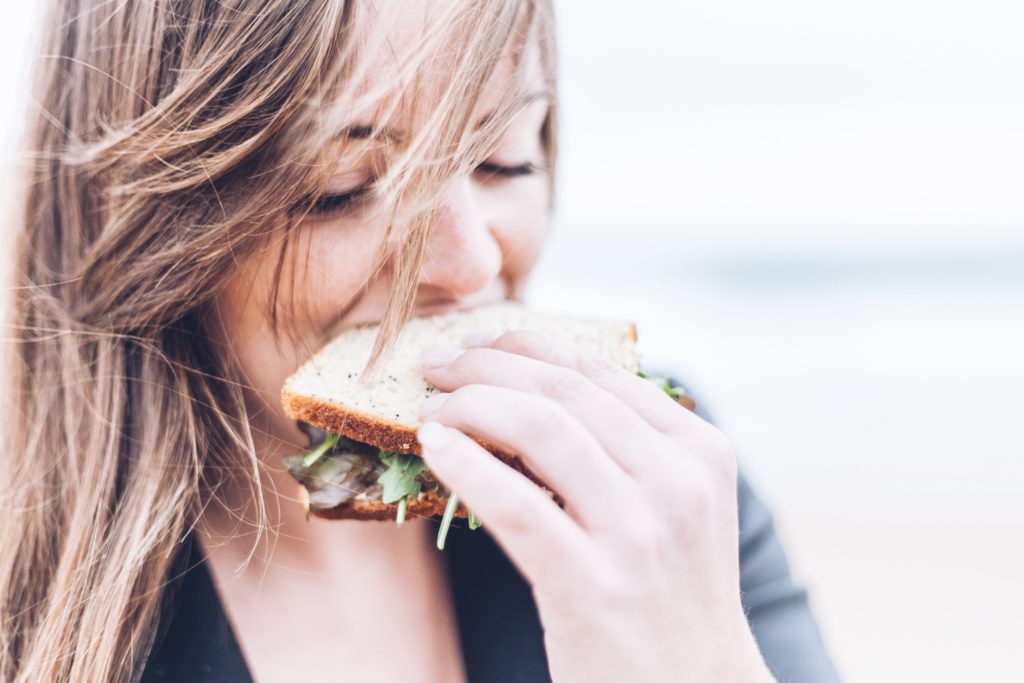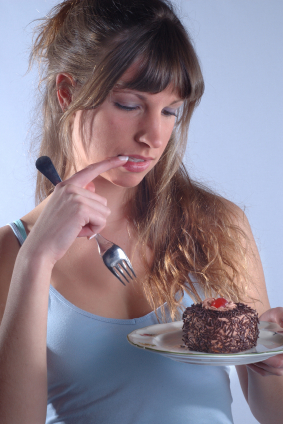I’ll be the first to admit that I can eat way too fast at times and I have to remind myself to slow down and enjoy my meal. When you are busy and eating to fuel your body, meal time can turn into a chore or a forgotten moment in time. In today’s fast paced lifestyle where sit down meals are becoming more rare, inhaling our food can be easy. However, current research suggests that eating at a slower pace can give the body a better chance to feel satisfied and enjoy the food which leads to less mindless overeating.
Slow eating can also help control blood sugar and have a positive impact on one’s overall health. If you are like me , and have to remind yourself to eat a little slower from time to time, here are five reasons to give you some incentive.
1. Your body needs time to tell you that you’re full.
It takes approximately 20 minutes for your body to signal that you’re full, so people who eat at a faster pace can overeat before they even know it’s happening. When you eat slower you give your body a chance to let you know that you’ve eaten the right amount of food. This works as a great motivator for most people because none of us like feeling “stuffed”. It’s uncomfortable!
2. Eating fast can cause indigestion.
When we start to eat, our body goes through a multi-step digestive process. If you eat too quickly, your body isn’t ready for the incoming food which can lead to indigestion. Ugh!
3. Slow eaters are less likely to develop metabolic syndrome.
People who eat fast are more likely to have the conditions, known as metabolic syndrome, that can lead to future cardiovascular disease. Those conditions include increased blood pressure, high blood sugar, excess body fat around the waist, and abnormal cholesterol. While eating slower alone doesn’t make you bullet proof, it can certainly help contribute to better health.
4. Eating slower can positively affect your weight.
By slowing down when we eat, we become more aware of when we’re full, and are more likely to stop eating when our bodies have had enough. This helps limit overeating and consuming more energy than your body may need.
5. take a break to enjoy your food.
Eating should be an opportunity for all of us to take a moment and enjoy the food in front of us and the company around us. I always eat great food, but sometimes I eat it so fast that I don’t really appreciate all of the great flavors and textures. If we treated most of our meal times like fine dining experiences, I believe we would be more likely to savor every bite even when you’re eating something as simple as a bowl of soup or a sandwich.
Slowing down to eat a meal helps us to become more present and to take a break from the busyness of the day which can lower stress and improve your overall sense of well being. There is a reason why sitting down for a long meal is one of the top ways that we relax and connect with one another.
Please remember that everyone eats too fast and even overeats from time to time. Don’t ever beat yourself up or feel guilty about anything food related, ever. Guilt can stress you out which is NEVER helpful. Taking care of your health is a long term effort and it’s all about balance. None of us are perfect. 🙂
Here’s to a happy, healthy, and mindful week!
Shared with love,
Jennifer



